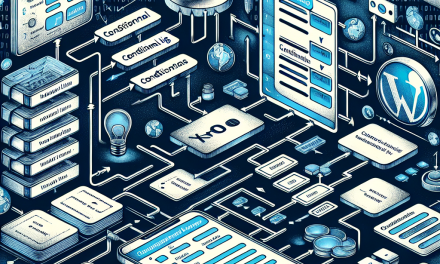In an increasingly digital world, online stores are prime targets for cybercriminals. If you’re running a WooCommerce shop, it’s crucial to ensure that your customers’ data is safe and secure. Here are the top strategies to safeguard your WooCommerce store and protect it from potential cyber threats.
1. Choose a Reliable Hosting Provider
Your web hosting provider plays a critical role in your website’s security. Opt for a hosting platform that specializes in WordPress and WooCommerce, as they will have the infrastructure to handle security properly. High-quality WordPress hosting providers like WafaTech offer robust security features integrated into their systems.
2. Keep WordPress and Plugins Updated
Outdated WordPress installations and plugin versions are common gateways for hackers. Regularly updating your WooCommerce store’s WordPress core, themes, and plugins closes off vulnerabilities. Make use of the automatic update feature whenever possible.
3. Implement SSL Encryption
An SSL (Secure Socket Layer) certificate is essential for any e-commerce site. It encrypts data between the server and the user’s browser, ensuring secure transactions. Most hosting providers offer SSL certificates, and you can easily set it up using a plugin from WordPress’s repository like Really Simple SSL.
4. Use Strong Passwords and Two-Factor Authentication
Ensure that all users, especially those with administrative access, use strong, unique passwords. Encourage the use of password managers to generate and store these passwords securely. Adding Two-Factor Authentication (2FA) adds an extra layer of security. You can install plugins like Google Authenticator for this purpose.
5. Limit Login Attempts
Brute force attacks often happen when hackers try various password combinations to gain access to your site. To mitigate this risk, limit the number of login attempts. The Limit Login Attempts Reloaded plugin can help you effectively manage login attempts.
6. Regular Backups
Regular backups ensure that you can recover your WooCommerce store in the event of an attack—whether it’s a malware infection or a server crash. Use plugins like UpdraftPlus to schedule automated backups to a secure location.
7. Monitor Your Store Activity
Monitoring your store for any unusual activity can help detect potential threats early. Use security plugins such as Wordfence or Sucuri Security to keep track of activities and receive alerts whenever suspicious actions are detected.
8. Implement a Web Application Firewall (WAF)
A Web Application Firewall safeguards your site against various threats, including SQL injections, cross-site scripting, and other malicious activities. Many hosting providers offer built-in firewalls, or you can use optional solutions like Cloudflare to add an extra layer of protection.
Conclusion
Securing your WooCommerce store is not just about installing plugins—it’s about creating a comprehensive security strategy. Always stay informed about the latest security threats and prepare your store accordingly. By following these strategies, you can create a safer online shopping experience for your customers, ultimately leading to higher trust and better sales.
Call to Action
For an effortlessly secure and high-performing WooCommerce store, consider WafaTech’s NextGen WordPress Hosting. With enhanced security features and expert support, you’ll have peace of mind while focusing on growing your business. Learn more about our services here.
Feel free to explore the official WordPress documentation for more insights on securing your website!





